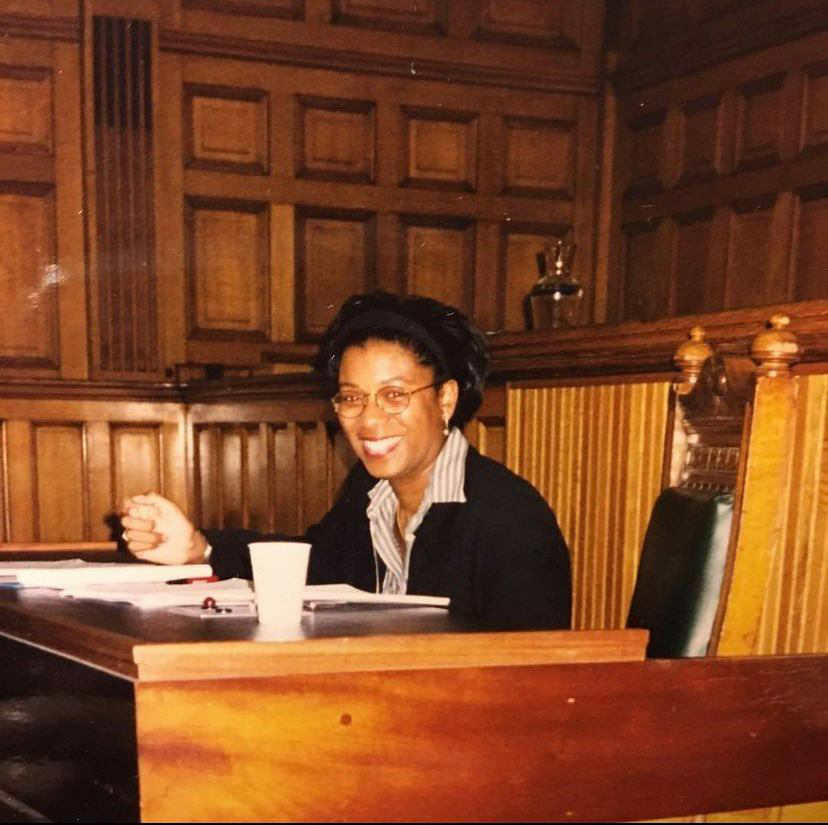
Have the courage to make the changes YOU deserve!

Is it Time for a Career Change?
Did you know, the average person will have 12 different jobs in their lifetime?
Switching careers is something I know a lot about. I started my professional career as a solicitor in the public sector. Later, when I moved into external and corporate affairs, my responsibilities included organising corporate events, ministerial and royal visits. Eventually, I decided to use my event planning experience and organisational skills to do something I absolutely love. I founded my wedding planning business, Benessamy, in 2011. Ten years later, I’m also coaching business owners and career movers who want to achieve their own unique version of success and enjoy a better quality of life.

Leaping from one profession to another and starting two businesses along the way has been more challenging and messier than a quick summary of my career history would lead you to believe. Walking away from my career as solicitor and my position on a senior management team were both big decisions. Perhaps you’re considering a similar leap and asking, ‘is it time for a career change?’
Warning Signs to Look Out For
- You feel apathetic about work and disconnected from your original reasons for entering the field
- You don’t feel like you’re making an impact
- Your workdays have become monotonous and you’re performing on autopilot
- You feel undervalued and as if your time and skills are being wasted
- You appreciate the stability your job provides, but you can’t shake the feeling you’re wasting your potential
- You’re demotivated and you’ve stopped seeking out new challenges
- Your job is affecting your personal life or making you unwell
- You dread going to work
- You regularly daydream about a new career
Should You Stick with the Job You’ve Trained For?
Thinking about switching careers is easy but acting on those thoughts can be terrifying, especially if you’ve invested a lot of time and money in qualifications and training. For some, switching careers means leaving a stable job to head down an uncertain path. For others, moving from a position of experience to one of relative ignorance can feel like taking a step backwards.
I believe each stage of your career journey is an opportunity to learn something about yourself. What are your greatest attributes? How do you respond to challenges? What kind of work really lights you up? Career choices that feel like missteps often turn out to be the most informative and transformational.
It’s also important to remember most employers would prefer you to feel enthusiastic and motivated. After all, happy workers are more productive. If you recognise it’s time to move on, they’d usually rather you did.
Can You Switch Careers with No Experience?
Starting a new career in a different industry is much more common than you think. Just because the experience you’ve amassed so far isn’t industry specific doesn’t mean you don’t have plenty to offer.
After researching the industry you’re interested in, try drafting a skills-based resume that focusses on the skills you have rather than your career history. Emphasise transferable skills that will benefit you in your new career, such as leadership and communication. Remember, you can include things from outside your professional work experience. Volunteer work, part-time work or life experience such as raising children or running a home all have value.
Other things to consider:
- Can you gain any experience on a part-time basis or through volunteering?
- Are there any specific qualifications, training programmes or courses you need to take?
- Are there any industry events you could attend to help build your network?
- Do you have any contacts already working in your chosen field who could mentor or support you?
If You Do One Thing This Week
If you recognise any of the warning signs listed above, consider making a plan to find a job that embraces your passions. Be honest and specific about what isn’t working in your current career. Is there anything you do like about the role? Examine your personal values and ask yourself what kind of work, company culture or business model would be a good fit. Start assessing your strengths and weaknesses and draft that skills-based resume. I bet you’re more qualified than you realise!
Further Reading/Watching/Listening
- Learn more about my Executive and Career Coaching
- Too frightened to change your career? Read these inspirational success stories…
- Overcoming Imposter Syndrome – 3 Tips to Help You Believe in Yourself.
